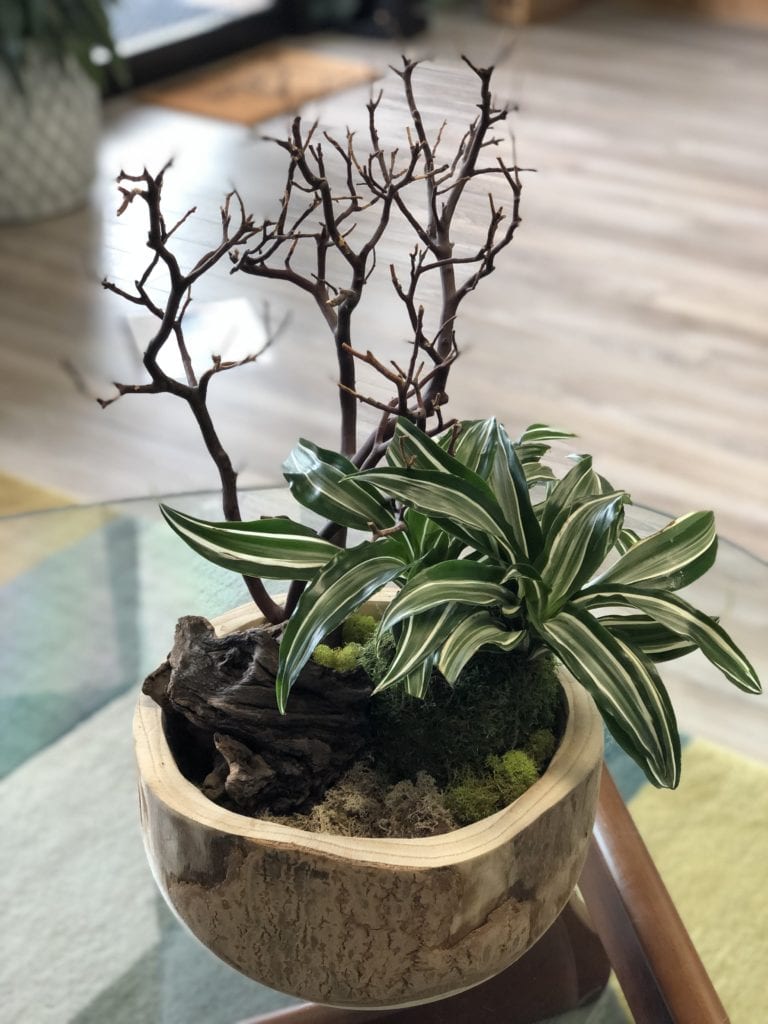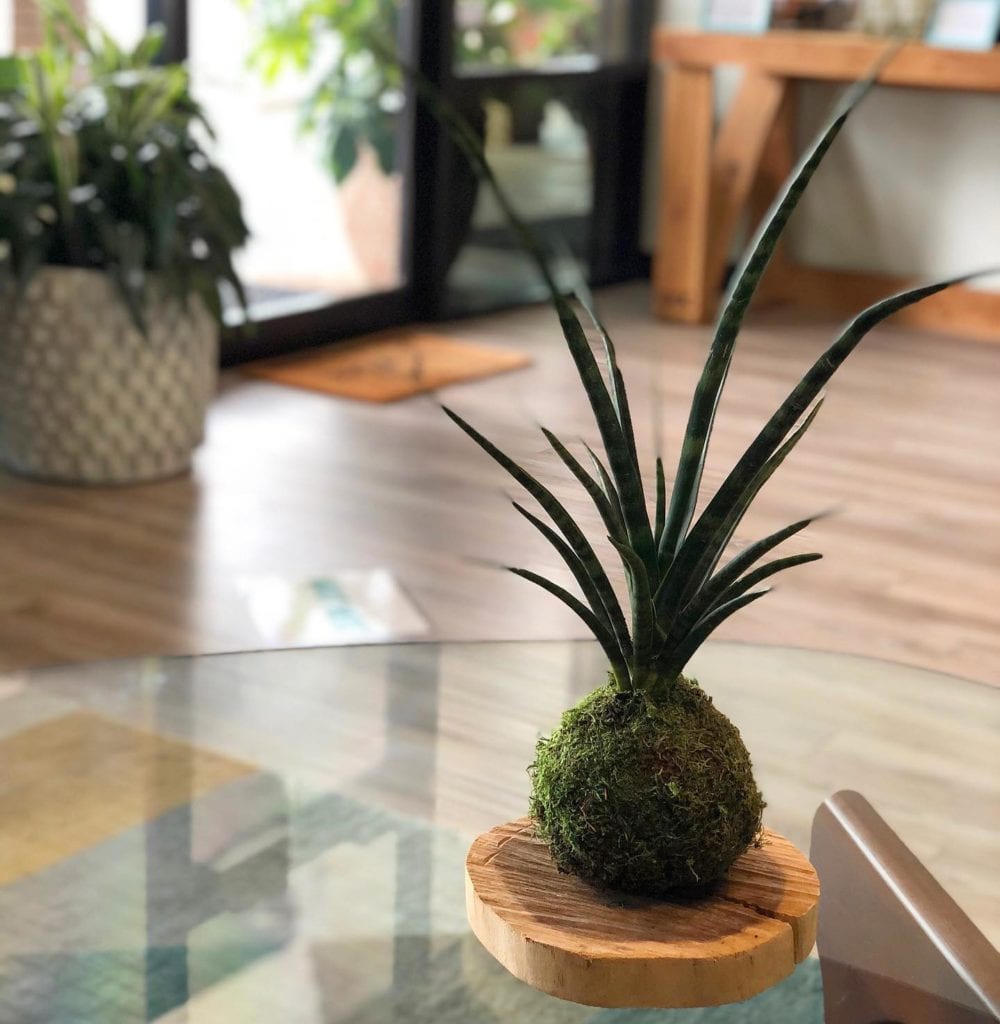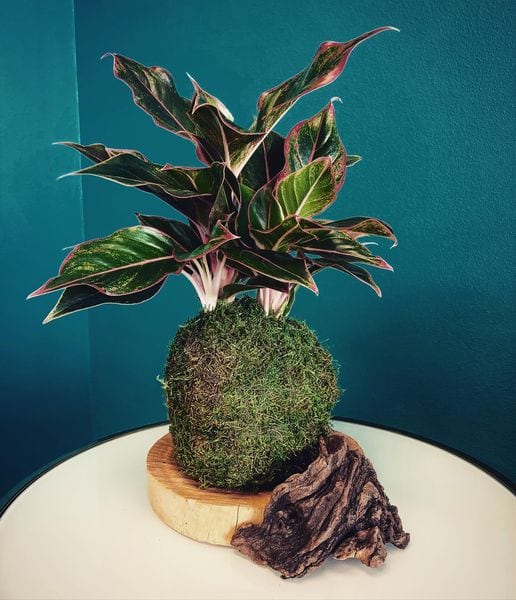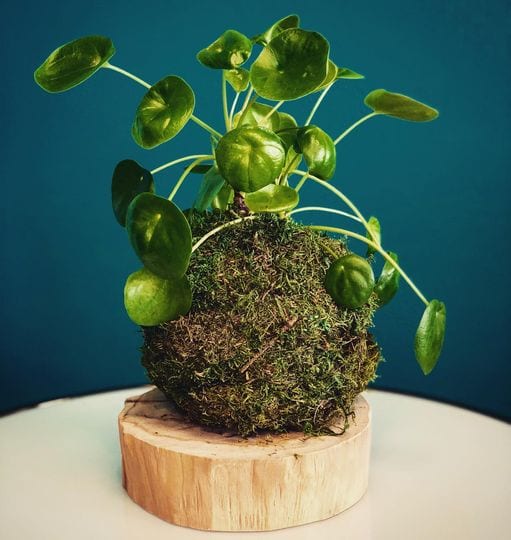
Kokedama is the Japanese practice of wrapping a plant’s roots in a moss ball filled with soil to grow. Kokedama plants are trendy, unique and sure to make a statement in any space. They’re typically displayed in ornamental dishes or hung in the air using twine. Are you interested in having a few of your own? The professionals at Leafscape can help!

How to Care for Kokedama Plants
Taking care of a kokedama plant is fairly simple, but there are certain guidelines that you should keep in mind. It’s also important to follow specific care instructions for the species and plant type you choose. A few general things to consider include:
- Watering Your Plants: If the moss ball feels light, it likely needs water. To water kokedama plants, fill a container with water to soak the ball of moss. Place your plant in the container with the plant side up, and ensure that the moss ball is completely submerged. After it has been fully saturated for about 10-20 minutes, remove it from the container and squeeze the moss ball to gently drain any excess water. Let it drip dry before placing it back where it belongs. You can also lightly mist the moss in between waterings when it feels dry.
- Lighting: Depending on the type of plant you choose, it’ll require bright or indirect light to survive. If your plant is located next to a window, make sure that you have blinds or a curtain to block harmful rays during the brightest parts of the day depending on which direction your window faces. .
Feeding: While your kokedama will be fine for a few months after initially being planted, you’ll eventually need to feed it once a month (especially in the spring and summer). When you’re watering your plant, simply stir in the necessary amount of liquid plant food. It’s that easy! You should also note that feeding isn’t required every month in the winter time.

Are you ready to take your home or office to the next level? Leafscape offers these unique plants, and our team is here to beautifully design anything you can dream up! Click here for a quote on kokedama plants.


